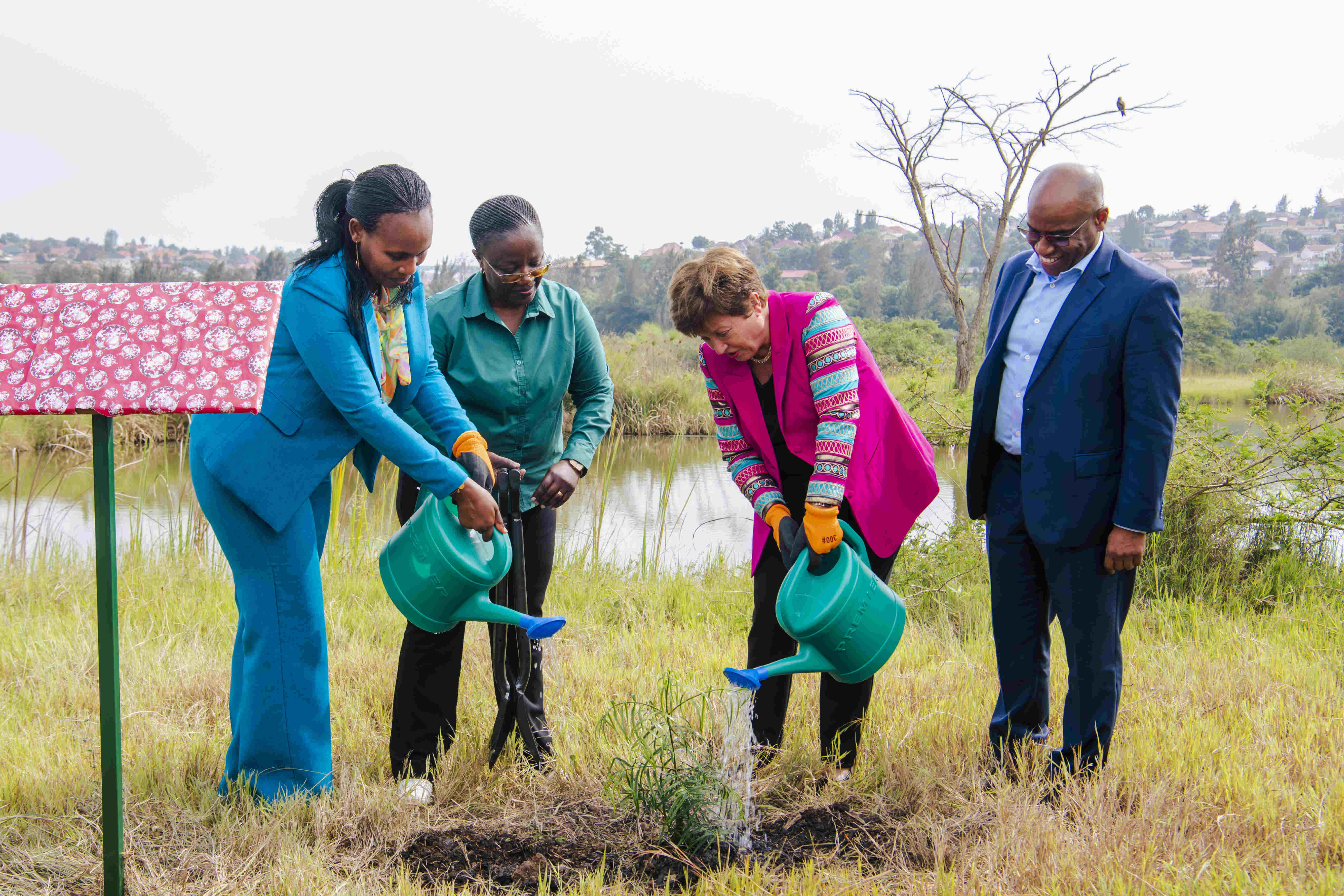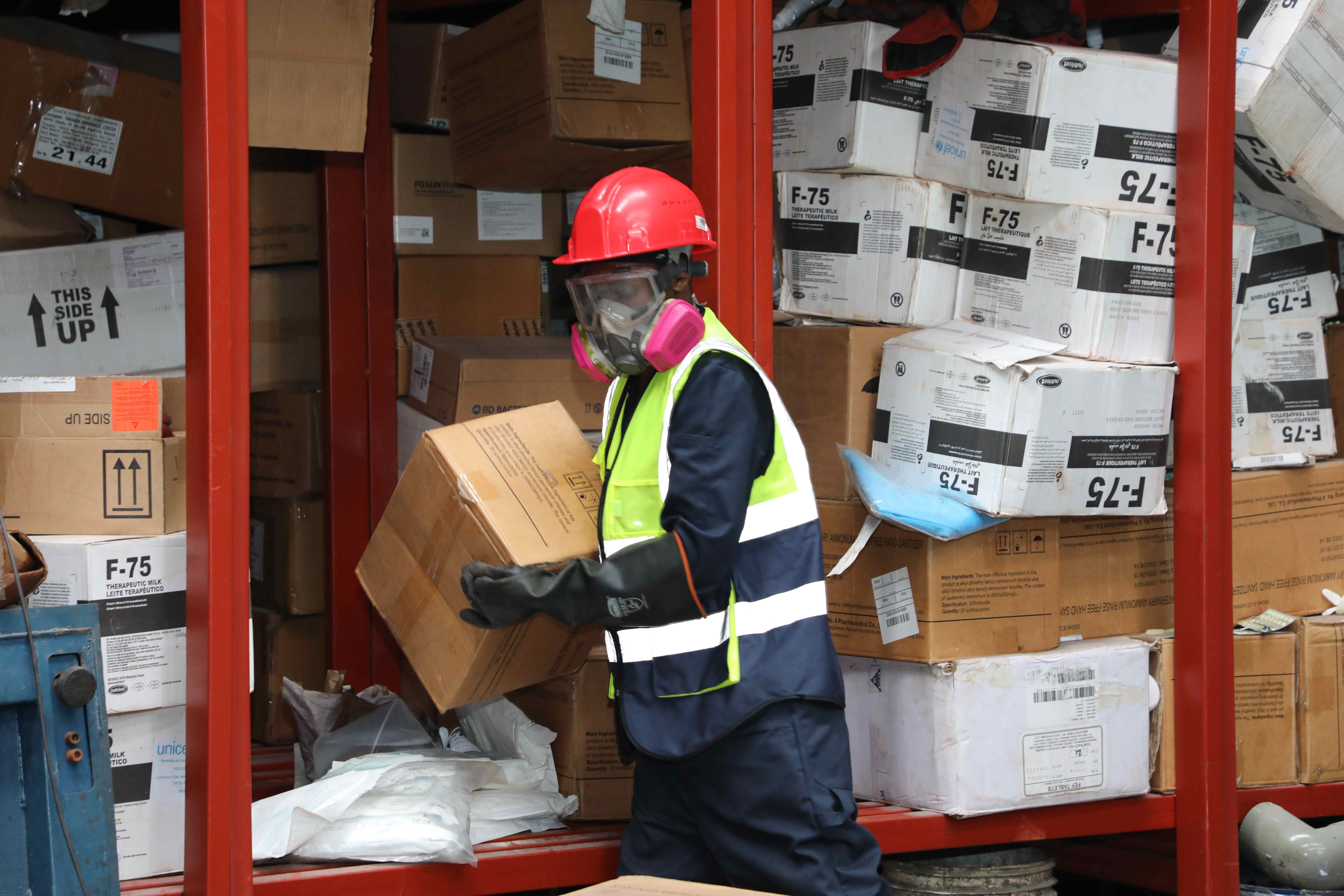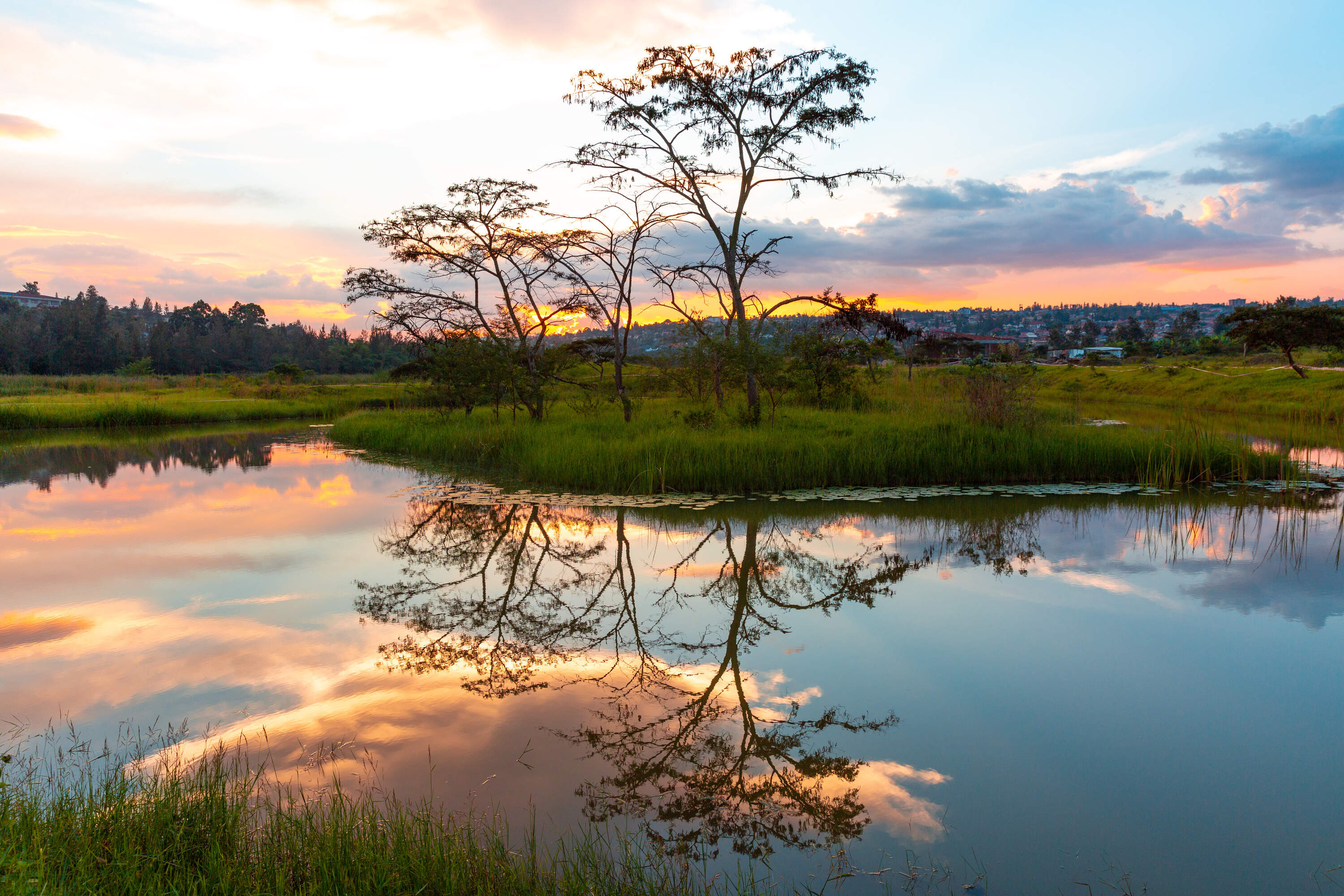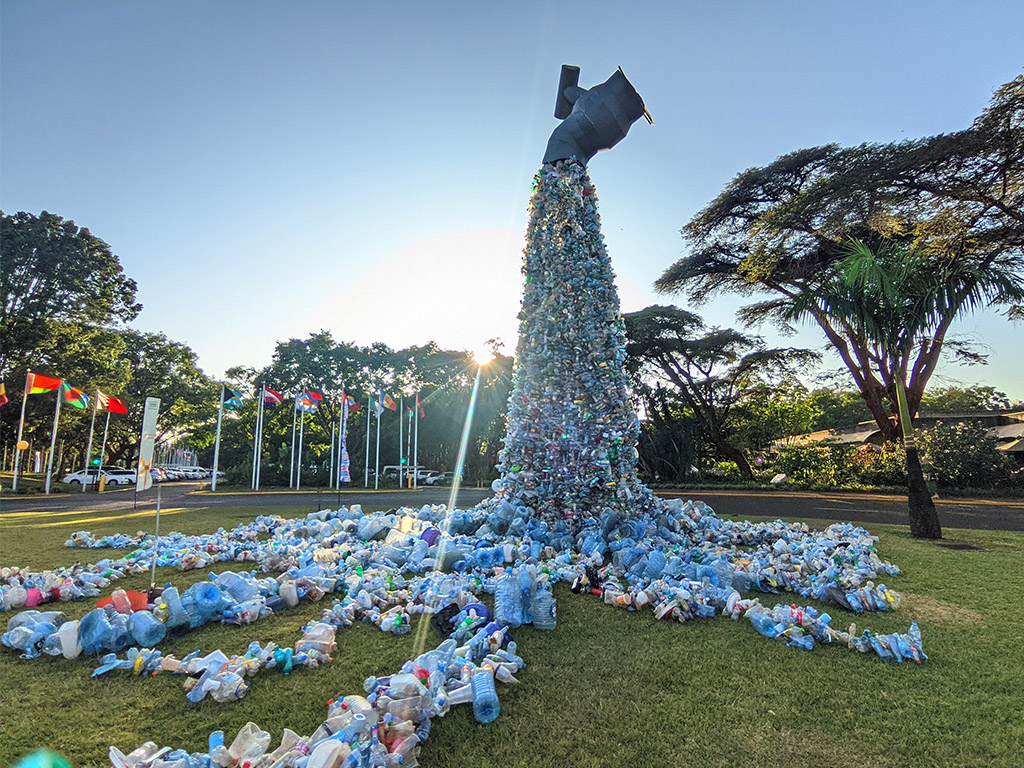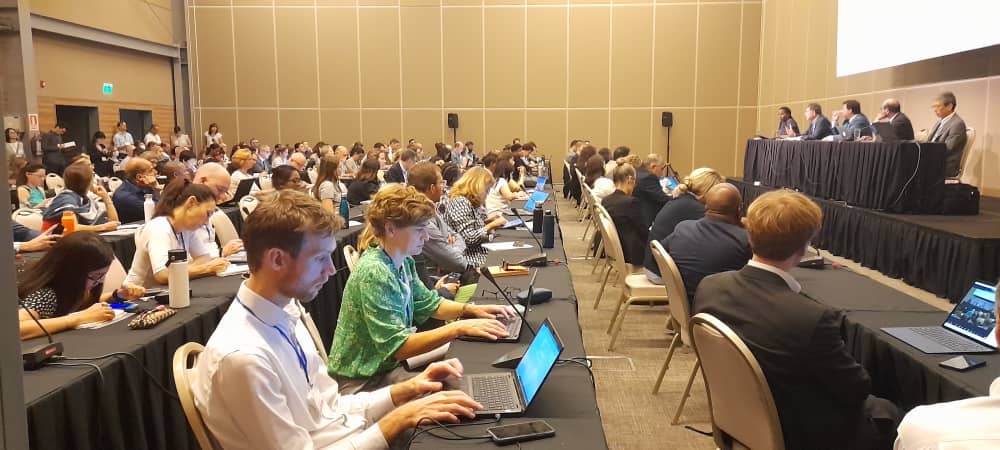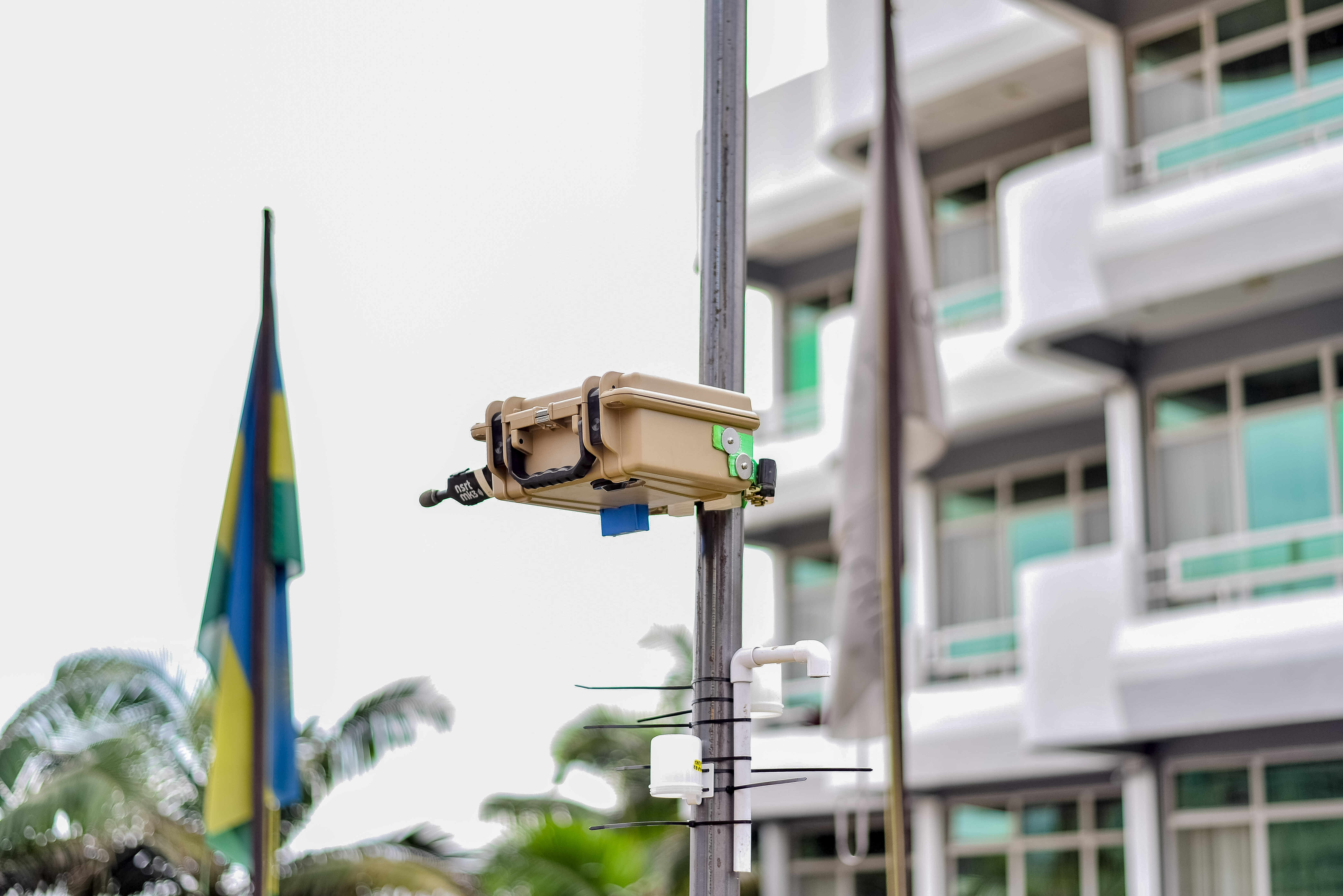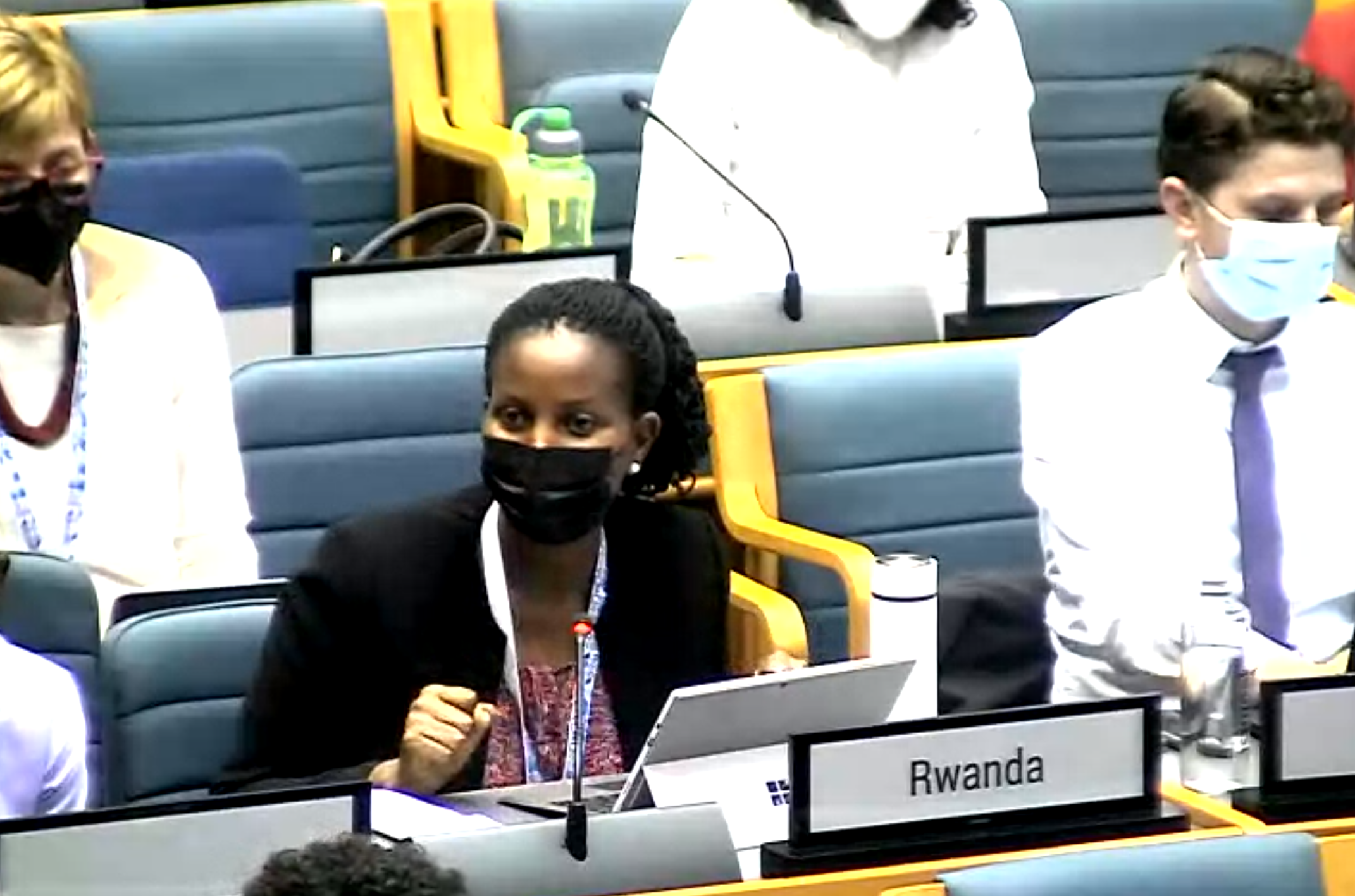
Rwanda champions international legally binding treaty on plastic pollution
Rwanda has joined with Peru to lead negotiations on a draft resolution that will pave the way for an international legally binding agreement on marine litter and plastic pollution. The resolution will be presented at the second segment of the 5th UN Environment Assembly (UNEA 5.2) in late February.
The UN Environment Assembly will bring together the world’s nations in Nairobi to formally start negotiations on the treaty, which would reduce global plastic wastes by curbing the manufacture and use of single use plastics, and fostering a circular economy for plastics.
The draft resolution to develop an international legally binding agreement was proposed by Rwanda and Peru and presented by both countries in Geneva, Switzerland in September 2021 during a conference organised by the United Nations for Environmental Program. The draft has been shared and extensive consultation is being undertaken to foster support from around the world.
The resolution represents the most ambitious global move against plastic pollution to date and seeks bold, urgent, and united action to tackle this transboundary issue. If successful, the resolution will convene an Intergovernmental Negotiating Committee that will establish an open mandate for negotiations, promote a comprehensive approach to address the lifecycle of plastics, identify key elements of the global response and develop a new legally binding global instrument, such as a treaty.
Under plans drawn up by Rwanda and Peru, and with support from the European Union and other countries, nations would be required to develop national action plans to limit plastic production and use in their economies.
The resolution also encourages the establishment of shared objectives, reporting and monitoring as well as scientific and technical support and financial and technical assistance. Under the resolution, the concept of common but differentiated responsibility will ensure all countries work together to reduce plastic pollution, with major polluters taking the lead.
“The proposals being deliberated by Member States envision actions, from source to sea, that address all sources of pollution along the whole lifecycle - from production through disposal and reduction of the leakage of existing plastic currently in the global ecosystem. Member States will need to consider in their negotiations the different types of plastics and additives within them, especially to allow plastics to be recycled safely and to foster a circular plastics economy,” said Inger Andersen, Executive Director, United Nations Environment Programme.
Plastic pollution is a threat to the planet at large, and while marine and coastal areas are suffering, so too are landlocked countries like Rwanda. Plastic pollution is a threat to ecosystems, human health, livelihoods and terrestrial and freshwater environments as well as to our oceans.
“Global collaboration is necessary to tackle this threat. Only united international action will enable and encourage local solutions. We need concrete, mandatory commitments to safeguard the planet’s future and put an end to plastic pollution,” said Juliet Kabera, Director General, Rwanda Environment Management Authority.
Like much of the world, Rwanda was drowning in plastic before it adopted a law related to the prohibition of manufacturing, importation, use and sale of plastic carry bags in 2008 and later single-use plastic items in 2019.
This decisive action against plastic has not only made Rwanda one of the world’s cleanest places, it has also energised economic growth by creating green jobs around the country.
Many companies and cooperatives started manufacturing environmental-friendly bags made from locally available and environmental-friendly materials. This provided employment to many Rwandans, especially young people and women.
In an example of the opportunities this brought, in the first month of Kenya’s ban on plastic bags, Rwandan manufacturers exported 78 tonnes of biodegradable bags made from paper, cloth and sisal worth USD 250,000. This was a strong signal that doing the right thing for the environment also pays off economically, and reinforced the importance of bringing the business community on board to find sustainable alternatives.
Currently, more than 60 countries have expressed their support for the resolution and the treaty. Alongside Rwanda and Peru, they include the European Union and its 27 Member States, the United States of America, Senegal, Costa Rica, Norway, Switzerland, Guinea, Philippines, Ecuador, Kenya, Chile, Colombia, Uganda, Madagascar, the United Kingdom, Cabo Verde, Azerbaijan, Dominican Republic, Uruguay, Panama, Timor-Leste, Bosnia and Herzegovina, Georgia, Comoros, Eswatini, Pakistan, Benin, Gabon, Iceland, Georgia, the Republic of Korea, Mauritius, North Macedonia, Djibouti and Iran.
Learn more about the path to a global plastics agreement in this Q&A with Inger Andersen, Executive Director of the United Nations Environment Programme.
Learn more about the United Nations Environment Assembly here.
Key Facts About Plastic Pollution
Worldwide:
- 2 million plastic bags are used every minute around the world. On average, a plastic bag is used for just 12 minutes – but take up to 1000 years to decompose
- In 1974, the average person consumed 2kg of plastic a year. Today, the average consumption per capita is 43kg – an increase of over 2000%
- Over the next five years, the world’s leading plastic manufacturers are set to increase production by a third
- Just 9% of plastics worldwide are recycled
Rwanda:
- Rwanda banned single-use polythene plastic bags in September 2008. This law was later upgraded to include other types of single use plastic packaging materials.
- This was followed by a law banning the use and production of single-use plastics in 2019. This was accompanied by a two year grace period, which has recently come to an end.
- Rwanda is a founding member and co-chair of the African Circular Economy Alliance.
Topics
More posts
Rwandans Urged to halt wetlands degradation and contribute to wetlands restoration
Kigali, February 02,2023- Rwanda joins the rest of the world to commemorate World Wetlands Day (WWD) usually celebrated every year with the ultimate…
IMF Managing Director commends Rwanda’s commitment to fighting climate change
The Managing Director of the International Monetary Fund (IMF), Kristalina Georgieva commends Rwanda’s commitment to fighting climate change and being…
Rwanda Environment Management Authority and AKADEMIYA2063 Launched Partnership to Support Climate Mitigation and Adaptation
Kigali, January 11, 2022 – In view of implementing the African Union Commission (AUC) resolution to support African Union (AU) member states to comply…
The new Global Biodiversity Framework with an ambitious plan to protect and restore nature
Montreal, Canada, 22 December 2022 - The “Kunming-Montreal Global Biodiversity Framework” (GBF) adopted at the 15th meeting of the Conference of…
Rwanda launches a five-year initiative to improve hazardous waste management
The Rwanda Environment Management Authority (REMA) and the United Nations Development Programme (UNDP) have today launched a five-year project to…
Rwanda calls on the world to put nature first and agree on an ambitious Global Biodiversity Framework
Rwanda is calling on nations of the world to join hands and agree on an ambitious Global Biodiversity Framework at this UN Biodiversity Conference…
Rwanda and Norway to host a "Roadmap to end plastic pollution by 2024" event at WCEF2022
Rwanda and Norway through the Rwanda Environment Management Authority (REMA) are organising a "Road map to end plastic pollution by 2040" side event…
Negotiations on global treaty to end plastic pollution begin in Uruguay
Rwanda will join nations from around the world in Uruguay to begin drafting a global treaty to end plastic pollution with the first session of the…
AIMS and REMA launch Kigali City Framework for Noise and Air Quality Monitoring Campaign
The African Institute for Mathematical Sciences (AIMS), in partnership with Rwanda Environment Management Authority (REMA), have today launched the…
